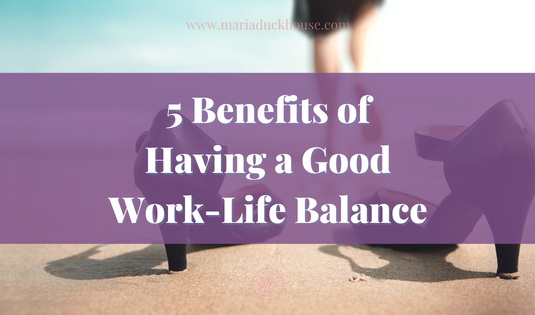Have you thought about how important innate mental health is? It’s the base of a good life. Knowing about innate mental health can help you reach your best self. It lets you think, feel, and act in ways that make you feel good.
There are many ways to deal with mental health issues. Dr. George Pransky and Mr. Sydney Banks have made big contributions. Remember, your innate mental health is special and can grow. By focusing on your mental health, you can overcome anxiety, depression, and stress. This opens the door to a more meaningful life.
Key Takeaways
- Understanding innate mental health is key for a happy life
- Innate mental health is a special gift that can grow
- Looking after your mental health helps you feel better
- Innate mental health ideas are easy and work well
- Using innate mental health leads to a more fulfilling life
- Knowing yourself and your feelings is important for mental health
- Using your natural abilities can greatly improve your mental health
Understanding Innate Mental Health
Starting your journey to understand innate mental health is key. Recognizing the importance of inner peace is vital. Inner peace is the base for emotional resilience and mental clarity.
By focusing on inner peace, you can handle life’s ups and downs better. You’ll make choices that match your values and goals.
The science behind our mental health is complex. It involves genetics, environment, and lifestyle. Yet, a simple truth stands out: our thoughts shape our experiences.
Understanding this can help you find mental clarity and emotional resilience. This leads to a more rewarding and balanced life.
Exploring innate mental health is more than just managing symptoms. It’s about unlocking your true inner peace, emotional resilience, and mental clarity. This journey needs patience, self-awareness, and a desire to know yourself deeply.
The Interplay of Factors
Understanding innate mental health means looking at genetics, environment, and choices. Recognizing these factors helps you make better decisions for your mental health. This supports inner peace and emotional resilience.
The Role of Genetics in Mental Health
Exploring mental health, genetics plays a big part. Inherited traits can make you more likely to have certain mental health issues. But, the environment also affects how your genes work and your mental health. Understanding how genetics and environment work together is key to cognitive wellness and natural mental balance.
Studies found certain genes linked to mental disorders. Genes like CACNA1C and CACNB2 help control calcium in neurons. But, remember, each gene’s role is small. So, genes can’t predict or diagnose mental illnesses yet.
Inherited Traits and Behaviours
Your genes can make you more likely to have mental health issues. But, it’s not the only thing. Lifestyle choices and stress levels also matter. Knowing about genetics helps you work on cognitive wellness and natural mental balance. This can lower your risk of mental health problems.
Environmental Influences on Genes
When aiming for cognitive wellness and natural mental balance, think about how the environment affects your genes. Making smart lifestyle choices and managing stress helps. This balance supports your mental health.
The Impact of Nutrition on Mental Health
Thinking about what affects your mental health? Nutrition is key. Eating well can really help your mind. Some foods can even make you more resilient.
Choosing the right foods can make you feel better. It can also lower the chance of mental health problems.
Foods That Boost Mental Resilience
Some nutrients are very important for your mind. Omega-3, vitamin D, and magnesium are among them. Foods like fatty fish, nuts, and leafy greens have these.
A healthy gut is also vital for your mind. Eating foods high in fiber and probiotics helps keep your gut balanced.
The Gut-Brain Connection
The gut and brain are closely linked. An imbalance in the gut can lead to anxiety and depression. Eating well and living healthily can help your mental health.
Mindfulness and Its Benefits
Starting your journey to inner peace and emotional strength? You might have heard of “mindfulness.” It’s become very popular. Mindfulness means being aware of what’s happening right now without judging it. Studies show it can help you feel less stressed and more focused.
Practising mindfulness every day helps you know yourself better. It lets you handle life’s ups and downs. Regular mindfulness practice also makes you think faster and clearer. This is great in our busy world where distractions are everywhere.

Mindfulness meditation also helps you deal with tough times in relationships. It makes you better at talking to others. Adding mindfulness to your day can bring you peace and strength. This makes life more rewarding and meaningful.
Practising Mindfulness Daily
To begin, take a few minutes each day to focus on your breath or a simple word. The aim is not to reach a certain state. It’s about being present and accepting what is. With regular practice, you’ll grow stronger and find peace in your life.
Physical Activity and Mental Health
Doing regular physical activity is key for good mental health. Exercise helps reduce anxiety and depression. It makes us feel better and think clearer.
Studies show exercise is great for our minds. A study in the British Journal of Sports Medicine found sitting too much can lead to depression. But, moving more can lower stress, boost mood, and clear our minds.
Exercise as a Natural Antidepressant
Exercise is a natural way to fight depression. It releases happy hormones and helps us sleep better. This is vital for our mental health.
Recommended Activities for Well-being
To feel better mentally, we need to move more. Try walking, running, swimming, or cycling. Mindfulness exercises like yoga or tai chi also help reduce stress and improve our mood.
The Power of Sleep
Sleep is key for our innate mental health and mental wellbeing. It helps our brain sort out feelings, memories, and experiences. This helps keep our mind healthy.
Not sleeping enough can harm our mental health. It can lead to anxiety, depression, and other problems.
Understanding Sleep’s Role in Mental Health
Sleep is vital for our mental health. Not getting enough sleep can cause big problems. Our brain goes through important stages while we sleep.
This helps keep our mind in good shape. Knowing how sleep helps us can improve our mental health.
Tips for Improving Sleep Quality
To sleep better, stick to a routine and relax before bed. Avoid exciting things before sleep. Make your bedroom cool, dark, and quiet.
By focusing on sleep, we can boost our innate mental health and mental wellbeing.
Emotional Intelligence and Mental Health
Improving your mental health is a big journey. Emotional intelligence is key. It helps you understand your and others’ feelings. This guides your actions and thoughts.
Having emotional intelligence builds emotional resilience. This is vital for facing life’s ups and downs. It keeps your mind healthy.
Studies link emotional intelligence to better mental clarity. It helps you handle your feelings well. This improves your relationships and decisions.
It also makes life more positive. To grow your emotional intelligence, know yourself. Recognize your feelings and find good ways to deal with them.
Developing Emotional Awareness
To grow emotional awareness, listen to your feelings. Notice your thoughts and body signs. They show how you feel and act.
Being aware helps you understand yourself and others. It’s key for managing stress and boosting mental health.
Strategies for Enhancing Emotional Intelligence
There are ways to boost your emotional smarts. Try mindfulness and self-awareness. Also, work on your relationships.
By doing this, you build emotional resilience. This improves your mental health and happiness. Emotional intelligence grows with effort and practice.
The Importance of Social Connections
Social connections are key for our psychological well-being and cognitive wellness. They help us feel good and think clearly. Having friends and family around us is very important.
Studies show that people with friends live longer. They also have a lower chance of getting sick in the mind. This is because friends help us feel safe and happy.
Building a Supportive Network
It’s important to have people we can count on. We can meet new friends by joining clubs or helping out in our community. This way, we make our lives richer and happier.

Dr. Edward Hallowell says feeling connected is vital. It makes us feel part of a bigger group. It makes us feel loved and understood. So, let’s make sure we have lots of friends and family around us.
Overcoming Stigma Surrounding Mental Health
Working towards mental wellbeing and inner peace means tackling mental health stigma. Stigma stops people from getting help and hurts them and their families. By clearing up wrong ideas about mental illness and talking openly, we can fight stigma and spread awareness.
Stigma is complex, affecting people at many levels. It’s important to see how it works, both subtly and openly. This way, we can make a place where people feel safe to get help without fear.
To promote mental wellbeing and inner peace, we must keep fighting stigma. It takes effort from everyone to make a supportive space. Together, we can help people grow and reach their best.
Misconceptions About Mental Illness
One key to beating stigma is to clear up wrong ideas about mental illness. Learning about mental health helps us fight myths. We can share our stories, support awareness campaigns, and help groups that fight stigma.
Promoting Open Discussions
Another important step is to encourage open talks. Making a safe space for sharing helps break barriers. We can talk with friends, join groups, and seek help when needed.
Techniques for Stress Management
Life can be complex, and managing stress is key. It helps you stay emotionally strong and clear-minded. This leads to a happier, more balanced life.
Good stress management helps you face daily challenges better. It keeps you positive and well.
Identifying Stress Triggers
Finding out what stresses you is the first step. Think about what makes you feel stressed or overwhelmed. It could be people, situations, or events.
Once you know what stresses you, you can start to deal with it. You might set boundaries, practice mindfulness, or talk to loved ones.
Effective Stress Relief Strategies
There are many ways to reduce stress and feel better. Regular exercise, mindfulness, and deep breathing are good examples. Adding these to your day can help.
They make you feel less stressed and anxious. This improves your mental clarity and overall happiness. Taking care of your mind is vital for a happy life.
Seeking Professional Help: When and Why
As you work on your innate mental health, knowing when to get help is key. It’s a big step towards better psychological well-being. Understanding when to ask for help can lead to a happier life.
Looking into therapy is important. You might try one-on-one counseling, group therapy, or online sessions. Each has its own benefits. Finding the right one is important for your growth.
Understanding Therapy Options
Therapy offers a safe space to talk about your feelings and goals. A therapist can teach you coping skills and help you understand yourself better. This can make you stronger, improve your relationships, and make life better.
Starting this journey is brave. It shows you want to grow and understand yourself better. With the right help, you can face life’s challenges with confidence and purpose.
Cultivating Resilience in Mental Health
Building resilience is key for good mental health. It means being able to adapt to changes. This helps us stay mentally balanced and strong.
The Concept of Psychological Flexibility
Being present and accepting our feelings is at the heart of resilience. It lets us handle stress and stay positive. Studies show it’s vital for bouncing back from tough times.
Practices for Building Resilience
To build resilience, we need to do many things. Mindfulness, like meditation, helps us stay calm. Exercise, sleep, and healthy food also boost our mental health.
Having friends and asking for help is important too. These steps help us become mentally strong and flexible. This way, we can face life’s challenges head-on.
FAQ
What is innate mental health?
Innate mental health is our natural way of thinking and feeling. It’s about being well. It comes from our genes, environment, and how we live.
How do genetics and environment impact mental health?
Our genes can make us more likely to have certain mental health issues. But, our environment also plays a big part. It can change how our genes work and affect our mood.
What is the relationship between nutrition and mental health?
Eating foods that are good for our brain can help us feel better. It’s all about our gut and brain working together.
How can mindfulness and meditation improve mental health?
Mindfulness every day can make us less stressed and happier. It helps us find peace and be strong emotionally.
What are the mental health benefits of physical activity?
Exercise makes our mind clear and keeps us well. It’s like a natural medicine for our mind.
How does sleep impact mental health?
Sleep is key to our mental health. Good sleep helps us feel better and stay healthy.
What is the significance of emotional intelligence in mental health?
Emotional intelligence helps us understand and handle our feelings. It’s important for our mental health and happiness.
How do social connections impact mental health?
Having friends and family who support us is vital. It keeps our mind and heart healthy.
How can we overcome the stigma surrounding mental health?
We need to talk more about mental health and clear up wrong ideas. This helps everyone feel more at ease.
What are effective techniques for stress management?
Knowing what stresses us and finding ways to relax is key. It helps us stay strong and clear-minded.
When and why is seeking professional help important for mental health?
Getting help from experts is sometimes necessary. They can guide us to better mental health.
How can cultivating resilience improve mental health?
Learning to handle life’s ups and downs builds resilience. It helps us stay balanced and mentally strong.
Source Links
- The Secret to Mental Health: Operating Manual for the Human Mind
- Linking mental and physical health with the power of social connection
- Mental Well-being; The Key to Everything — Lori Carpenos & Associates
- C:\iTools\WMS\TandF-Journals832261\WorkingFolder\WCMH_A_875864.dvi
- Building an evidence base for Innate health
- Common Genetic Factors Found in 5 Mental Disorders
- Nature, nurture, and mental health Part 1: The influence of genetics, psychology, and biology
- The Impact of Nutrients on Mental Health and Well-Being: Insights From the Literature
- An Overview of the Potential Role of Nutrition in Mental Disorders in the Light of Advances in Nutripsychiatry
- Frontiers | Physical Fitness and Dietary Intake Improve Mental Health in Chinese Adolescence Aged 12–13
- What are the benefits of mindfulness?
- Has the science of mindfulness lost its mind?
- Exercise improves mental health status of young adults via attenuating inflammation factors but modalities matter
- Sporting Mind: The Interplay of Physical Activity and Psychological Health
- The impact of movement on mental health – Mental Health In The Workplace
- How sleep affects human health, explained
- Why Sleep Is Important for Health: A Psychoneuroimmunology Perspective
- Sleep Health: Reciprocal Regulation of Sleep and Innate Immunity
- Emotional Intelligence and Mental Health | BrainsWay
- Exploring the Relation between Emotional Intelligence, Subjective Wellness, and Psychological Distress: A Case Study of University Students in Taiwan
- The Connection Prescription: Using the Power of Social Interactions and the Deep Desire for Connectedness to Empower Health and Wellness
- The Crucial Role of Friendship in Mental Wellbeing | Teladoc Health UK
- SFP_Cover_122015
- Leveraging Neuroscience to Fight Stigma Around Mental Health
- Mental Health Stigma
- Stress Management – PubMed
- 10 Effective Stress Management Techniques
- How to look after your emotional health | Psyche Guides
- The Importance of Mental Health on Your Recovery
- Building Resilience: How to Cultivate Mental Strength in Challenging Times
- How to build resiliency
- Building your resilience






